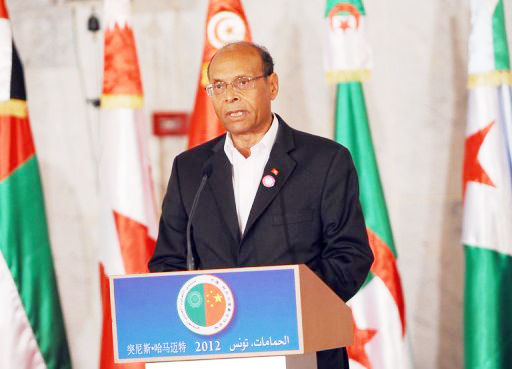TORONTO: Last week I began a virtual tour of Ramadan around the world, inspired by the stories of my Moroccan, Pakistani and US-based colleagues at Search for Common Ground, a non-profit conflict transformation organization. This week, as even Toronto buzzes with invitations to fast-breaking iftar dinners, I look to Lebanon, Indonesia and Guinea.
Nour Awaiss, French and Arabic Editor for the Common Ground News Service, reflects on her experience as a Christian in Lebanon during the month when many of her Muslim compatriots fast, and draws parallels to the atmosphere surrounding Christian holidays: the family reunions of Christmas, the joy of children on Palm Sunday and honoring the dead on All Saints’ Day.
She notes a similarity to family meals at Christmas: “The celebration at the end of Ramadan, Eid Al-Fitr, is an opportunity for the entire family to take part in a festive meal in their family’s village after the morning prayer marking the end of Ramadan.” Another Lebanese colleague, Ali Dahwich, Finance and Administrative Officer, explains, "I will go to Tyre, my hometown in the south, to share lunch with my family. Thirty cousins, uncles and aunts will gather around plates of stuffed mutton and mechoui (barbeque).”
Just like in the days preceding Palm Sunday, which marks Jesus’ arrival in Jerusalem and is celebrated a week before Easter, “in the lead up to Eid Al-Fitr, the holiday marking the end of Ramadan, clothing stores are crowded and amusement parks are full of children of all ages. In their new clothes, they are swept away by the magic of this sacred time.”
Much in the way that Catholics in some parts of the world commemorate the dead on All Saints’ Day, in the early morning of Eid, “some Muslim families gather at the graves of deceased family members to read the Fatiha prayer (the first chapter of the Quran) in memory of their ancestors,” Awaiss adds.
In Lebanon, the religious holidays of all the major religious communities in the country are state holidays for everyone. “Life is good in Lebanon,” concludes Awaiss, “on all its holy days.”
Ramadan also impacts business, something that is acutely felt in Indonesia.
Agung Yudhawiranata, Program Coordinator and Bahasa Indonesia Editor, explains: “Because of the change in peoples’ schedules, there is an effect on business. Restaurants and entertainment establishments reduce their hours of operation or cover their windows with black cloth during the day; lunch meetings are replaced with buka puasa (breaking the fast, or iftar) dinners. But first, people endure the heavy traffic jams minutes before sunset as everyone rushes home to break the fast with their families.”
Accommodating this Ramadan schedule, “many businesses or government offices organize special evening events for colleagues, clients and employees and their families. Much business is conducted and many relationships are reaffirmed at buka puasa gatherings.”
In addition to heavier traffic in Jakarta’s already slow-moving streets, Ramadan can bring other challenges. According to Yudhawiranata, “By some weird phenomenon of economics, the prices of staple foods magically take a sharp hike. This has been challenging for some Indonesians who, following steep electricity tariff hikes in July, cannot afford these items to feed their families.”
In the West African country of Guinea, many of the cultural and spiritual aspects of Ramadan mirror those in other countries, but are also shaped by its unique context.
Safiata Barry, administrative and finance assistant in the Guinea office explains, “Here in Guinea, Ramadan is a very special month when we pray, fast and spend time with our loved ones. As in other Muslim countries, we fast during the day until the evening prayer after sunset.”
“After prayer,” she continues, “family and friends come together to break the fast. Traditionally, we eat rice prepared with chicken, meat or fish mixed with vegetables, fonio [a popular West African grain] and porridge. Afterwards, we sit and chat or watch television – if there is electricity.”
Barry explains that in Guinea, “During Ramadan, men also send money and cola fruit to their in-laws, as a sign of respect.”
But like most of my colleagues taking part in Ramadan, Barry highlights that this month means much more than the fasting, feasting and gifts: “Ramadan is a time when I reflect on those who are less fortunate. I can really feel what it is like to experience hunger, and can sympathize with those who live without food on a daily basis.”
Juliette Schmidt is Assistant Director of the Muslim-Western relations program at Search for Common Ground. This article was written for the Common Ground News Service (CGNews).
Source: Common Ground News Service (CGNews), 24 August 2010, www.commongroundnews.org
Copyright permission is granted for publication.

